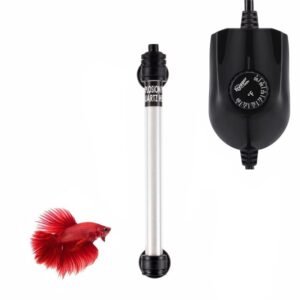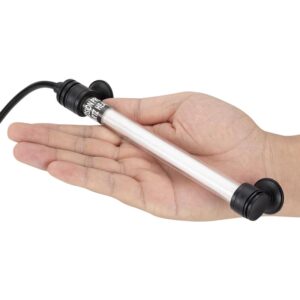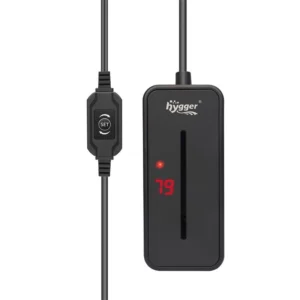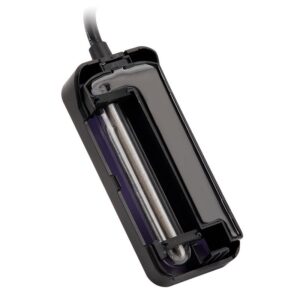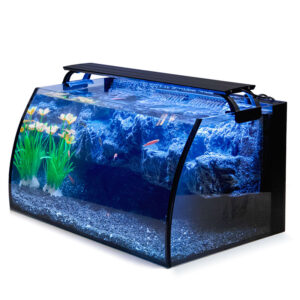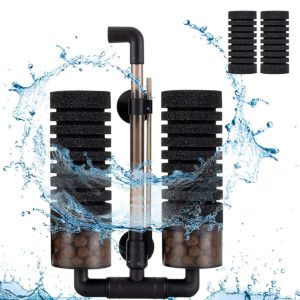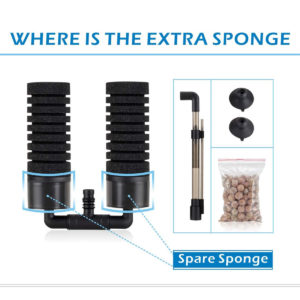Why is Betta Fish Flaring Its Gills and Fins
As one of the popular fish among aquarists, bettas are tropical freshwater fish. Bettas are active in captivity. And they will swim around the tank in response to your touch and even play with you. Of course, once betta fish are threatened by incompatible tank mates, mirrors, or other factors, they may puff up gills and fins. In today’s article, we will discuss angry betta fish – why do betta fish flare their gills and fins?
Fish flaring gills
Fish flaring gills look larger than normal. There are two main reasons for betta fish flaring gills – mate and fight. Male betta fish will flare their gills when mating. Because it makes them look stronger. Besides that, betta fish are aggressive. So, they will flare their gills before fighting. Because flaring gills make them look larger, which can frighten the opposite. In addition, sometimes bettas will flare the gills to take in oxygen.
Generally, normal gills flaring of betta fish do not need treatment. But when fish flare gills and fins, you can check whether there are signs of fin rot. Once you find any abnormal symptoms, take action to heal your fish immediately. By the way, Siamese fighting fish and guppy fish are susceptible to flaring gills.
Why do betta fish flare their gills at me?
Sometimes betta fish will flare gills at me, why? It is a common behavior when betta fish are introduced to a new tank. Fish flaring gills can be a defensive behavior. Because they are not familiar with the new environment. In this case, you should help your bettas get accustomed to a new tank. During the cleaning process, you can leave the fish in your tank. Then clean the tank gently and slowly. Also, most betta fish can see colors and action, while they can also feel vibrations.
For instance, betta fish have more cones than humans. So they can not only see red, green, and blue, but bettas can even see ultraviolet colors. Aside from that, bettas may fare the gills at a mirror. But actually, they do not know the fish in the mirror are themselves. Once you find the causes of flaring fish gills and fins, it is vital to take the necessary steps and start the treatment. Next, we will list some ways to heal your flaring fish.
| Causes of fish flaring gills and fins | Treatment |
| Mate | Do not need treatment |
| Fight | Do not need treatment |
| Oxygen deficiency | Improve oxygen level by adding air pumps or air stones, etc. |
| Disease | Once fish suffer from disease, you should find root causes first, and then take targeted treatment |
Is flaring good or bad for bettas
Whether betta fish flaring is good or bad depends on the real-time situation. Just continue reading, and you will learn more.
Flaring is good for betta fish
To some extent, betta fish flaring is good. For example, it is feasible for fish to flare 1–2 minutes per day. Fish will get exercise and feel entertained. Also, betta fish will flare because of excitement. As long as bettas do not show aggression or extend their fins, flaring would not be damaging to your fish.
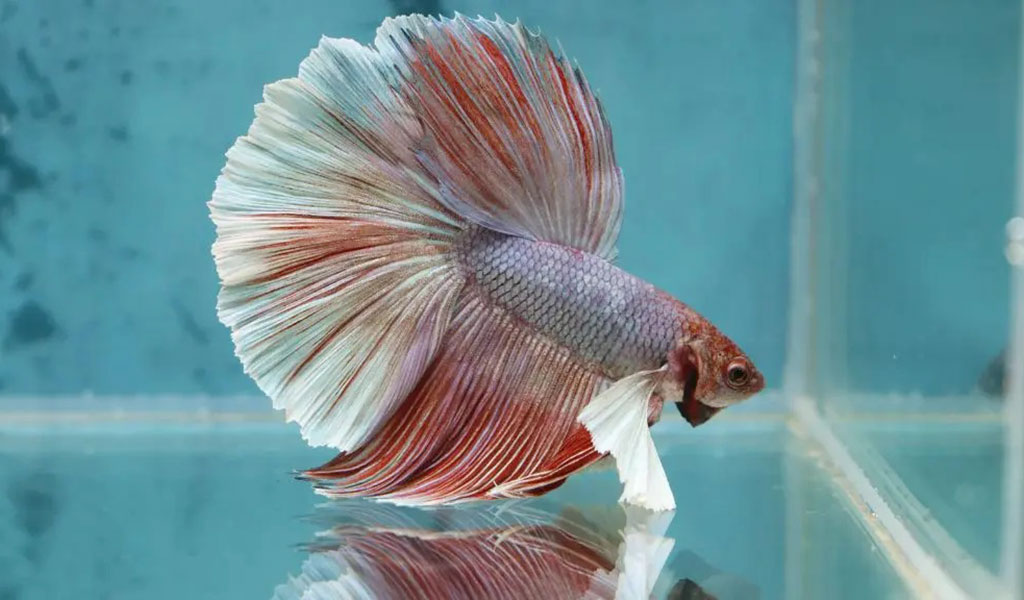
Flaring is bad for betta fish
Betta fish flaring may be the result of stress, which is detrimental to your fish. The stress may be caused by another betta, incompatible betta tank mates, or their reflection. Once bettas become stressed, they may refuse to eat and their immune system would suffer damage. Provided that betta fish flare over 20 minutes each week, it is recommended to stop their flaring.
What to do when betta fish don’t flare
What can you do if betta fish don’t flare? If there is only one male betta in your tank, you can introduce a female or another male betta. Then, bettas may fight, and your fish would flare. But you should keep an eye on their fighting to prevent them from getting hurt. Furthermore, you can improve the water temp. Also, you can add some aquarium salt.
How to tell if the betta fish is happy
Abnormal betta fish behavior
Once bettas feel stressed or unhappy, they may show the following behaviors:
- Bettas’ body color turning dull
- Stress stripes (horizontal stripes) form on the body
- Loss of appetite
- Lethargic and inactive
- Bettas stay at the bottom of the tank
Additionally, let’s take a look at normal betta fish behavior:
- It swims and explores the tank
- Bettas flare their fins and become active when they see you
- Bettas hide in aquariums from time to time
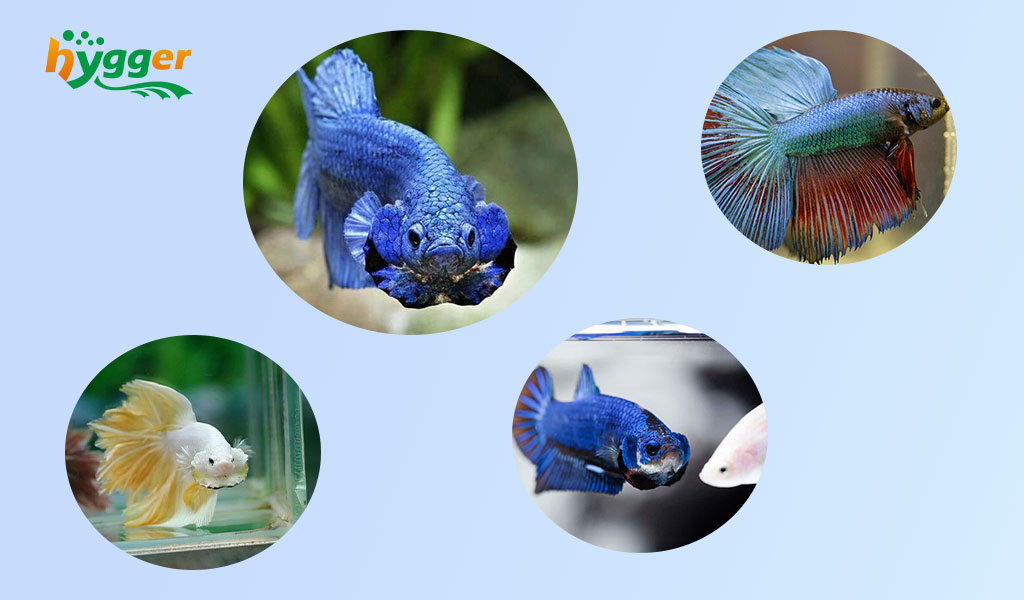
How to determine whether bettas are happy or not?
Exactly, you can determine whether bettas are happy or not according to their behavior.
Happy bettas will be active in aquariums and have a great appetite. While sad bettas may lose the desire to eat, rub themselves on rocks, or crash against the bottom of the tank. In this case, you can check the water parameters in betta fish aquariums.
Also, you can observe the swimming status. If your betta fish just stay in one place in the tank, it may mean they are unhappy. And you should check whether your bettas get sick.
Moreover, observing how bettas interact with you can be another way to tell if they are happy. If they feel stressed, they may swim away and hide. Facing this case, you can form a close bond with bettas by doodling or sticking notes on betta tanks.
How to keep betta fish happy?
Sad or inactive bettas may shorten their lifespan. Then how to keep betta fish happy? Next, we will discuss it in this segment.
- Provide plenty of room: bettas prefer swimming in the tank. Also, adequate space for them to swim, explore, play, and hide.
- Keep great water quality: Change 20-25 percent of aquarium water once each week. Also, test the water once per week. Commonly, the ammonia and nitrite levels should be 0, while the nitrate level can be no more than 20 ppm.
- Add some live aquatic plants: Live aquatic plants are helpful to oxygenate aquarium water, while also providing hiding places for bettas. Excellent live plants for betta tanks can be Marimo moss, water sprite, and Vallisneria.
- Proper and balanced diet: You can feed betta food rich in protein. Live, frozen, or freeze-dried meaty foods are excellent alternatives, like daphnia. Nonetheless, never overfeed. Feed bettas twice each day and make sure they can finish eating within 2–3 minutes.
In summary
After reading, have you got a better understanding of betta fish flaring? To conclude, betta fish will flare facing mating, fighting, unfamiliar environments, inadequate oxygen in the tank, etc.
Related topics
That’s all for today. For more about betta fish, you can go to:

